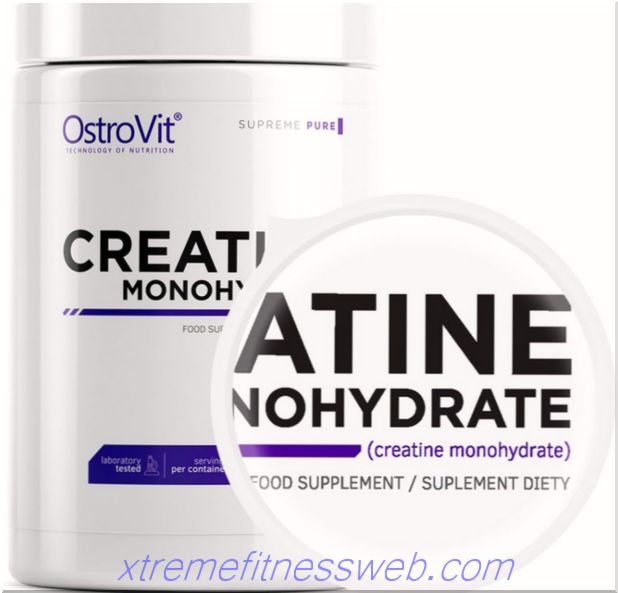
As the studies of specialists and practice in the field of sports nutrition show, the effect of building high-quality muscles, burning fat reserves and gaining strength by athletes largely depends on their regular intake of special sports supplements.
Content
- 1 Muscle Growth
- 2 Fat Burning
- 3 Beginners in the Fitness World
- 4 For power
- 5 For stamina
Muscle growth
It is designed to ensure the intake of a protein-carbohydrate shake with the addition of creatine, arginine and ZMA (a complex of zinc, magnesium and aspartame).
Theory : It is easy to gain muscle mass, provided that during the day, calorie intake will exceed their consumption, while it is also necessary to consume a sufficient amount of protein. It is recommended that the athlete eat fractionally, at least 5-6 times a day, replacing 2-3 meals with a portion of a protein-carbohydrate shake. The ZMA complex and arginine are drugs that stimulate the body to produce hormones. The creatine added to this cocktail will add strength to the athlete and increase the rate of increase in muscle mass.
Expected effect : The use of this cocktail for 2-3 weeks contributes to the increase of at least 500 g of pure muscle mass.
Action : Creatine is able to increase strength and tighten muscle fiber. The ZMA complex raises testosterone levels. The combination of whey protein with rapidly digestible carbohydrates will protect muscle tissue from destruction due to catabolism and will reduce strength after strength training. Arginine helps to produce growth hormone and increase muscle volume, which turn into "poured".
Method of application : One protein-carbohydrate shake containing 30-40 g of protein and 50-80 g of carbohydrates should be drunk:
- before training, adding 3-5 g of arginine to it;
- after training, adding 3-5 g of creatine;
One hour before bedtime, it is recommended that you take 3-5 g of arginine and ZMA on an empty stomach.
Fat burning
will provide the intake of whey protein, gaglesterones, amino acids, calcium and capsicum.
Theory : The condition for effective drying is the predominance of calorie consumption over their consumption. This is achieved by increasing the duration of both cardio and power loads, but it is necessary to avoid the problem of muscle loss due to the regular supply of muscle protein and the use of supplements that contribute to the conversion of fat into energy. Only in this way and without much effort can you maintain muscle mass even with a calorie deficit on a low-calorie diet. In addition, the proportion of refined foods containing simple carbohydrates, such as sugar, chocolate, cakes, honey and other similar foods, as well as those containing a lot of fat, should be gradually reduced in the diet. And under no circumstances should you eat carbohydrate foods at night. Cardio workouts of 35-45 minutes duration are recommended from 4 to 6 times a week.
Expected effect : From 500 to 1000 g of fat mass is burned in one week. However, do not overdo it - losing weight at such a pace, but feeling a breakdown, still add a little carbohydrate to your diet or reduce the load of cardio. If the weight stands still, this means one thing - there is a caloric surplus in the diet, that is, you simply need to reduce your servings of food.
Action : To protect muscles from destruction during a low-calorie diet, it is necessary to increase protein intake. According to the latest research data, whey protein, which forms the basis of a high protein diet, burns fat mass much more efficiently, compared to red meat protein (beef).
Jeff Feliciano, a world-famous specialist in the field of sports nutrition, recommends taking BCAA amino acids, arguing how important their intake during strict diets and hard training for the preservation of muscle tissue. The BCAA amino acid has three branched side chains: leucine, isoleucine, valine, and it becomes popular with the body in conditions of energy deficiency, when it is forced to switch to proteins as an alternative energy source. Thus, the use of BCAAs can prevent muscle loss. As an effective means of fat burning, Feliciano recommends using a new tool - capsicum, which dulls appetite and accelerates the body's metabolic processes.
In addition to the above, Feliciano, a world-recognized guru of sports supplements, advises you not to forget that during a low-carb diet, a sharp decrease in insulin levels is possible, causing a malfunction in the normal functioning of the thyroid gland. Gaglesterones can avoid this and help cope with stress. Many studies have shown the effectiveness of taking calcium supplements, both for protecting bones and inhibiting the conversion of carbohydrates to fat.
Method of application : The athlete needs to increase the daily protein intake to 3 g per kilogram of his weight. Since it is impossible to do this only at the expense of ordinary foods, you should take protein shakes, as well as:
- BCAA in an amount of 5 g before cardio training;
- capsicum 60 mg 2-3 times a day;
- calcium - 1000 mg per day (preferably divided into three doses with meals);
- 60 mg gaglesterones 2-3 times a day.
For beginners in the fitness world
should start with a meal replacement, creatine, glutamine, flaxseed oil.

Theory : It will be useful for beginners to do fitness to know that they become big and strong when two simple conditions are met: regular training and high-calorie fractional nutrition. The latter is achieved through the intake of food substitutes, which are protein-carbohydrate shakes, balanced in all necessary nutrients. The well-known Jay Cutler after 6 months of training from a feeble teenager grew into a real Hercules. The logical question is: how did he achieve such an amazing result "> For strength
you will need to take creatine, a ZMA complex, a protein shake, phosphatidylserine, vitamins C and E.
Theory : Naturally, training aimed at increasing strength is different from training working on muscle growth. But, nevertheless, the type of sports nutrition in both cases is almost the same. Regarding the strategy of strength training, we can say that their main principle is to provide a sufficiently heavy working weight, which allows you to do no more than 3-6 repetitions in the set.
Expected effect : Of course, nothing can be changed in a day or two, but in a few weeks the result will be visible in the form of an increase of 10% to the working weight. And if the previous record in the bench press was, for example, 125 kg, now the athlete will be able to squeeze all 140 kg. Also in squats: instead of the usual 150 kg barbell, 165 kg are already placed on the shoulders.
Action : For the growth of strength there is no better tool than protein. And if it enters the body in insufficient quantities, then the grueling workouts in the gym will not succeed - the person will not become stronger from them. Creatine will add to the athlete both strength and power.
The main enemy of the trainee is cortisol, a catabolic hormone produced by the body in large quantities during strength training, resulting in increased protein breakdown and the destruction of muscle tissue. Vitamins E and C are designed to normalize elevated levels of the stress hormone and protect muscles from the damaging effects of catabolism. Inhibition of catabolic processes contributes to a rapid increase in strength. The final blow to cortisol is taking phosphatidylserine and glutamine. In addition, lowering the level of cortisol allows you to increase the level of testosterone - a hormone that directly affects the strength of the trainee.
Method of application : Daily intake of at least 3 g of protein per kilogram of weight. For example, with a weight of 100 kg, at least 300 g of protein should be taken during the day. It is also necessary to take:
- ZMA on an empty stomach one hour before bedtime;
- 400 mg phosphatidylserine before exercise;
- 3-5 g of creatine in a protein shake after training;
- 1000 mg of vitamin C;
- 800 IU of Vitamin E.
For stamina
you will need to take a carbohydrate shake, glycerol, BCAA, N-Acetyl Cysteine, ginseng root.
 Theory : A person’s endurance is directly affected by his energy level. Long workouts deplete energy reserves, forcing the body to overcome the energy deficit to the limit. Sports supplements are designed to help the body overcome extreme conditions, replenish glycogen reserves, prevent tissue dehydration and help maintain a high level of hormones responsible for recovery processes.
Theory : A person’s endurance is directly affected by his energy level. Long workouts deplete energy reserves, forcing the body to overcome the energy deficit to the limit. Sports supplements are designed to help the body overcome extreme conditions, replenish glycogen reserves, prevent tissue dehydration and help maintain a high level of hormones responsible for recovery processes.
Expected effect : Regular intake of sports supplements will allow the athlete to be much less tired during training, as well as recover faster after them.
Action : Carbohydrates have always been considered the main source of energy for long workouts, so the recommendations of sports doctors regarding the maintenance of such workouts came down to taking exclusively carbohydrate smoothies. But today, on this score, there is another opinion of experts, according to which, a cocktail taken after training, and containing not only carbohydrates, but also protein, increases insulin much more effectively compared to a purely carbohydrate cocktail. Stable insulin, on the other hand, is known to prevent the breakdown of muscle fiber.
Despite the importance of carbohydrates in the diet of endurance practitioners, do not go too far. Excessive carbohydrates can result in sudden changes in blood sugar, which will not slow down the impact on energy - from excessively high activity to absolute lethargy and apathy. This can be avoided by taking ginseng rhizomes, which can not only normalize and stabilize sugar levels, but also prevent the accumulation of fat. Glycerol will not allow dehydration, which is especially important at high ambient temperatures. The result of hard aerobic training is lowering testosterone levels. To avoid this, BCAA is recommended before exercise. Glutathione's antioxidant level, which is responsible for restoring strength, will be supported by N-Acetyl Cysteine.
How to use : Take before training:
- 50 g of glycerol with a glass of water 1-2 hours before classes;
- a cocktail containing 80-100 g of carbohydrates, or maltodextrin with 20-26 grams of whey protein, as well as 5 g of BCAAs.
Take after training:
- 600-1000 mg of N-Acetyl Cysteine;
- 600 mg of ginseng rhizome twice a day.







